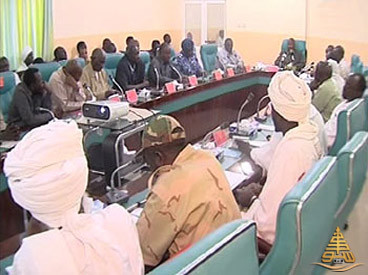South Kordofan’s council ministers has banned illegal weapons after clashes in al-Fula, capital of the erstwhile West Kordofan State, and resolved to make other reforms in the administration and service sector.
Ragab al-Basha, the state government spokesman and the minister of information, said late last week in al-Fula town during a press briefing that more than 500 families were displaced from their places of residence due to the recent intra-tribal clashes within the Misseriya tribe.
He further said that South Kordofan state government banned illegal arms in the western sector of the state after the recent conflict in al-Fula which claimed dozens of lives.
The state council of ministers in a meeting came up with a series of resolutions and mechanisms to resolve disputes in the western sector of the state, in addition to formulating a road map in order to offer better services within a 60-day period. The cabinet also banned the illegal carrying and possession of guns in the area.
“The state cabinet of ministers listened to reports on the security situation in the western sector localities and on the level of basic services there,” said al-Basha.
He pointed out that the cabinet is organizing a general conference to reconcile the Awlad Heiban and Awlad Surur on one side, Rizeigat and al-Fayareen on the other.
He further called on the civil administration and the people of the region to play a role in creating better living conditions and a spirit of peaceful co-existence among the people of the same region.
Basha acknowledged that the state government will be present in the region through the rotation of the ministers for a period of two months in order to oversee the completion of health, education, water services and the ongoing civil reconciliation process.
He stressed that the ministers will also review orders for establishing new localities and their structures.
Asmaa Ali Jaldagun, the state minister for social welfare, said in a press statement on Thursday that a joint committee was formed by the humanitarian aid commission and the health authority to assist the 500 displaced families with aid assistance in addition to health facilities.
She added that the committee had carried out a field visit to the places where displaced people settled, and assessed their numbers and needs in order to assist them through the civil society organizations operating in the region. She confirmed that 127 of the families fled to the Abu-Zaid area, 226 to Beja and another 45 to Lagawa town. Others who were not identified went to different neighboring areas.




